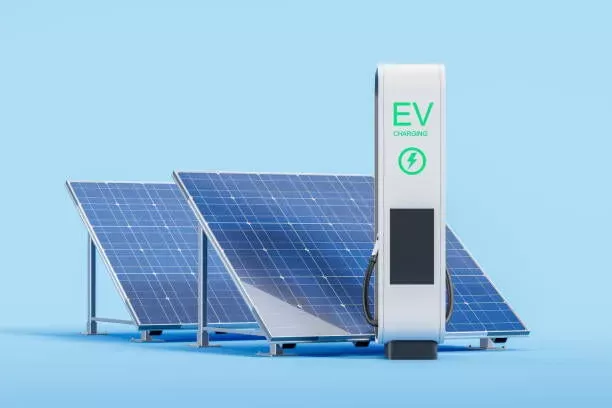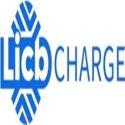Notifications

8 minutes, 30 seconds
-12 Views 0 Comments 0 Likes 0 Reviews

As a leading EV chargers manufacturer in China, LiCB Charge offers dependable AC and DC electric vehicle charging stations along with comprehensive charging solutions.
As the world accelerates toward a cleaner, more sustainable future, the fusion of solar energy and electric vehicles (EVs) is reshaping how we think about transportation. Solar EV charging — the practice of powering electric cars using energy captured from the sun — represents a groundbreaking synergy between clean energy generation and emission-free driving. With EV adoption surging globally and climate concerns becoming more urgent, solar-powered charging is rapidly becoming a pivotal innovation on the path to net-zero carbon emissions.
This green approach not only reduces reliance on fossil fuels and cuts greenhouse gas emissions but also offers long-term cost savings. But how does solar EV charging actually work, and what should EV owners know to maximize its benefits at home?
Solar EV charging — also known as photovoltaic (PV) EV charging — uses solar panels to convert sunlight into electricity, which then charges an electric vehicle. It combines two clean technologies — solar power generation and electric mobility — into an integrated system designed to shrink our environmental footprint.
Typically, solar panels are installed on rooftops or property grounds and connected to a home energy system that includes an EV charger. The electricity produced during the day can either directly charge the vehicle or be stored in batteries for use later, such as overnight charging.
By choosing solar charging, EV owners not only reduce their carbon footprint but also shield themselves from fluctuating utility rates and rising fuel costs. This self-reliant energy model blends environmental stewardship with energy independence.
Charging your EV at home with solar energy is becoming more convenient and cost-effective as solar technology advances. Key factors influencing your solar charging experience include:
Residential solar arrays generally range from 5 kW to 15 kW. Larger systems produce more electricity, covering both household energy demands and EV charging needs.
Level 1 chargers provide roughly 2 kW, requiring over 24 hours to fully charge a vehicle. Level 2 chargers, delivering between 7 kW and 22 kW, can recharge EVs within a few hours — ideal for syncing with peak sunlight.
Solar charging is most effective during daylight, especially midday when sunlight peaks. Cloudy weather or seasonal changes reduce output, making battery storage systems popular for storing surplus energy for nighttime use.
The solar energy needed depends on your car’s battery capacity and daily driving habits. Longer commutes require more frequent recharging.
Advanced EV chargers can dynamically adjust charging times and power based on solar availability. Solar-prioritized charging ensures your vehicle only draws from excess solar energy, optimizing efficiency and minimizing grid dependence.
For example, a 7 kW solar system can generate approximately 28 to 35 kWh on a sunny day — enough to drive around 90 to 110 miles (assuming all energy goes to charging). Since households also consume electricity for other needs, balancing production with consumption — possibly via home battery storage — is crucial for maximizing your solar investment.
One of the biggest draws of solar EV charging is long-term savings. Charging from the grid can be costly, especially with public charging stations charging premium rates.
Cost Comparison:
Average U.S. EV monthly consumption: ~408 kWh
Grid charging cost at $0.16/kWh: ~$66/month
Public Level 2 chargers: $0.30/kWh or more, raising costs to $120-$165+/month
Solar charging locks in energy costs for 20–25 years (the lifespan of panels). Although upfront installation costs can be high, government incentives and tax credits shorten the payback period significantly.
Utilities often use TOU pricing — cheaper electricity during off-peak hours and pricier rates during peak times. Smart solar charging systems capitalize on this by scheduling charging during high solar output or low-cost periods. Some even support vehicle-to-home (V2H) or vehicle-to-grid (V2G) functionality, allowing your EV to supply power back to your home or grid, reducing utility bills further.
Solar EV charging is about more than savings — it’s a vital part of the climate solution. Gas-powered cars emit about 4.6 metric tons of CO₂ annually on average. Switching to EVs dramatically cuts emissions, especially when charged with solar power.
Charging an EV with solar panels produces near-zero emissions, since solar energy is renewable and fossil-fuel free. Even grid-powered EV charging has a smaller carbon footprint than gasoline vehicles, but solar-powered charging eliminates emissions completely during the charge.
While promising, solar EV charging faces some hurdles:
Upfront Costs: Installing solar panels and chargers can be expensive, though federal and local incentives help offset expenses.
Solar Intermittency: Energy production depends on sunlight, which varies daily and seasonally. Battery storage or hybrid solar-grid setups improve reliability.
System Integration: Properly sizing and connecting solar systems with EV chargers requires professional expertise to ensure compatibility and efficiency.
Solar EV charging is poised for rapid growth. Advances in battery tech, declining solar panel prices, and increasing EV adoption are driving this trend.
Innovations like solar carports, portable solar chargers, and bidirectional charging will add flexibility and boost efficiency. Smart grid technologies will enable real-time energy management between homes, vehicles, and utilities.
Governments worldwide are supporting this transition with incentives, subsidies, and infrastructure investments — making solar-powered mobility more accessible than ever.
Solar EV charging embodies the future of clean transportation — cars powered not by fossil fuels, but by the sun’s limitless energy. For EV owners, it means lower emissions, energy independence, and significant fuel savings.
Whether you’re a homeowner thinking about rooftop solar or an EV enthusiast optimizing charging, the benefits are clear. As technology evolves and adoption grows, the fusion of solar energy and electric vehicles is set to revolutionize how we drive: cleanly, efficiently, and responsibly.Know more about Google SEO Directory
China EV Chargers EV Charger Manufacturer Smart EV Chargers Electric Car Chargers Electric Vehicle Chargers Electric Car Charging Stations

